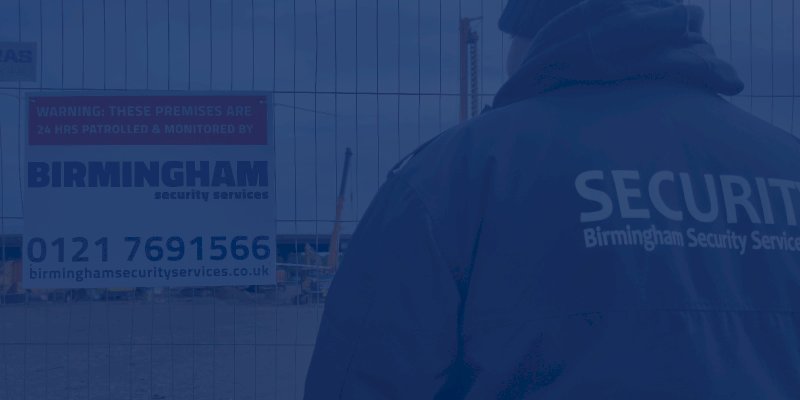How Security Officers Should Handle Escalated Security Incidents
3 weeks ago - 3 min read
In high-pressure situations, security officers must remain calm, composed, and in control to prevent incidents from escalating into dangerous confrontations. Tense scenarios—whether in retail spaces, corporate environments, or public venues—can quickly spiral into violence, making effective de-escalation techniques essential.
Security personnel must be well-trained, adaptable, and prepared for unpredictable situations, ensuring they mitigate risks, protect individuals, and uphold safety standards.
At Birmingham Security, we ensure our officers are equipped with industry-leading training, allowing them to handle escalations professionally and effectively. The following five-step approach is designed to help security professionals manage and resolve conflicts before they turn into crises.
1. Pre-Incident Planning: Anticipate and Prepare
Preparation is key to effective security management.
Before an incident occurs, security officers must:
- ✅ Understand potential risk factors in their environment (e.g., high-traffic areas, event crowds, or known security threats).
- ✅ Have a clear action plan for managing different types of incidents, from verbal disputes to physical altercations.
- ✅ Stay aware of emergency exits, surveillance systems, and response protocols to ensure swift action when needed.
Why It Matters:
Proper planning minimizes mistakes, instils confidence, and enables security teams to act swiftly and decisively when a situation arises.
2. Situational Awareness: Understand the Root Cause
Security officers must assess the situation beyond surface-level actions.
Key considerations when analysing an escalating incident:
- ✅ Identify triggers—Is the person intoxicated? Are they experiencing emotional distress? Is there an underlying dispute?
- ✅ Evaluate the level of threat—Is it verbal aggression, physical confrontation, or a potential security breach?
- ✅ Recognize environmental factors—Are bystanders involved? Is the location crowded, increasing the risk of collateral harm?
Why It Matters:
Understanding the underlying cause of aggression (rather than just reacting to immediate behaviour) helps officers take the right approach to de-escalation.
3. Active Listening: A Critical De-Escalation Tool
Listening, rather than reacting, can often defuse tension before it escalates further.
Techniques for Active Listening in Security Situations:
- ✅ Maintain appropriate eye contact to show engagement and control.
- ✅ Use open body language (avoid aggressive stances or gestures).
- ✅ Paraphrase and repeat key points to confirm understanding and show empathy.
- ✅ Acknowledge emotions—"I understand that you’re frustrated, and I want to help resolve this situation."
Why It Matters:
People in emotional distress often seek validation and acknowledgment. If security officers demonstrate that they are listening and willing to help, aggression often de-escalates naturally.
4. Communication and Resolution: Defusing the Situation
Verbal communication is a security officer’s most powerful tool in conflict resolution.
Best Practices for Effective Communication in a Security Crisis:
- ✅ Stay calm, assertive, and neutral—Avoid sounding confrontational or accusatory.
- ✅ Use non-threatening language—"Let’s figure this out together" instead of "Calm down now!"
- ✅ Offer solutions rather than ultimatums—Give the individual an opportunity to step away from conflict.
- ✅ Use clear, direct, and professional language—Unclear instructions can escalate tensions further.
Why It Matters:
Many conflicts can be resolved with clear communication and level-headed leadership, preventing unnecessary escalation into physical altercations.
5. Incident Reporting: Document and Analyse
After managing an escalated incident, thorough reporting is essential for future security improvements.
Post-Incident Reporting Should Include:
- ✅ A detailed account of events—What happened, who was involved, and what actions were taken?
- ✅ The effectiveness of de-escalation strategies—What worked well, and what could be improved?
- ✅ Any injuries, damages, or police involvement—If law enforcement was contacted, officers must provide full cooperation.
- ✅ Recommendations for preventing future incidents—Insights that could improve security protocols moving forward.
Why It Matters:
Incident reports help security teams refine their training, enhance protocols, and create safer environments by learning from past experiences.
Looking for Highly Trained Security Personnel?
At Birmingham Security, our officers are trained to industry-leading standards, ensuring they handle security escalations with professionalism, control, and strategic resolution. Whether you need corporate, retail, or event security, our team is ready to protect your business and people.
📞 Call us today at 01217691929 to learn more about our security services.